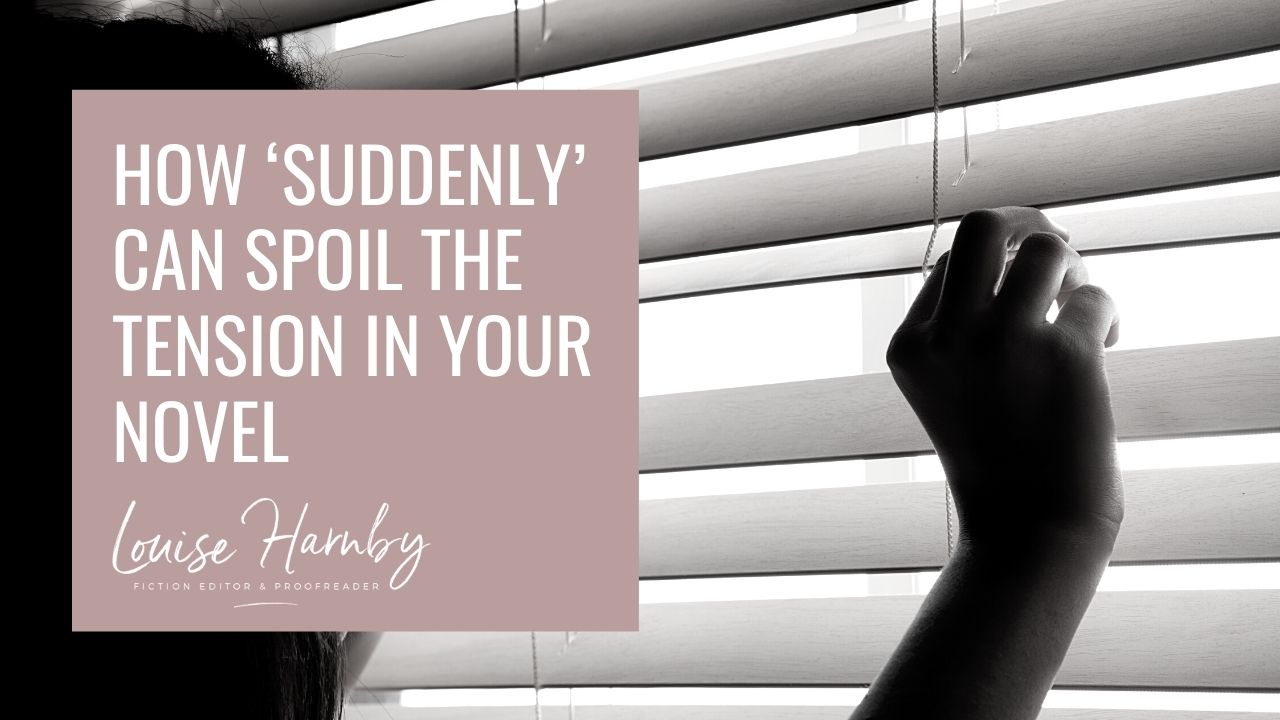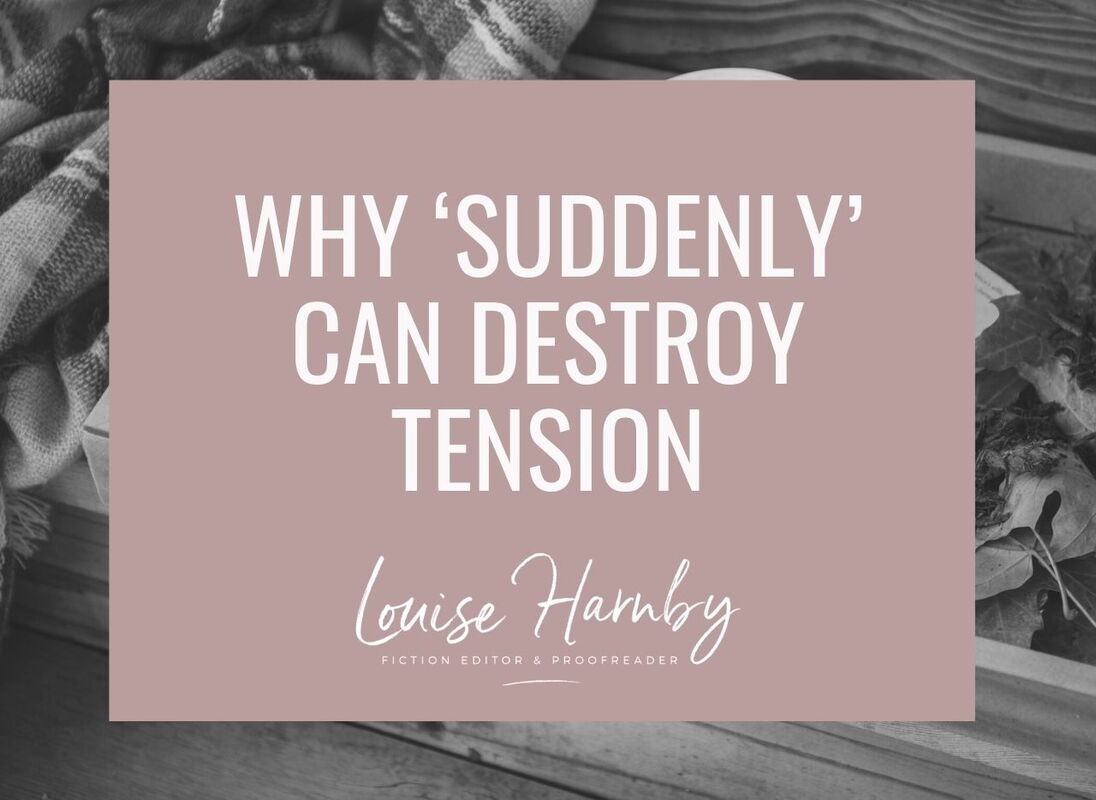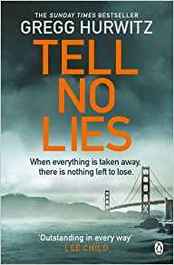|
Today, I discuss the negative impact that just one word can have on narrative tension: Suddenly.
I’m not suggesting writers eradicate it, but rather use it judiciously and with intention.
I edit a lot of crime fiction written by beginner and emerging authors. I’m an avid reader of the genre too. Reading a genre isn’t enough to make anyone an expert in it, but it does afford the editor plenty of opportunities to see it written well, and to experience it as a punter ... to ask: Why do I like that? What is it about that scene that works so well? What’s hooking me here?
There’s one word that great crime writers put on the page with care – suddenly. However, many new or developing writers struggle to leave it out. Two reasons for overuse stand out:
I’ve grabbed a handful of crime fiction from my own bookshelves, and taken examples from these books to show how suddenly-free writing can be more immediate and immersive. 1. Countering wordiness Some developing writers record every nod, every furrowed brow. All that mundane stuff happens in real life. And in the movies we get to see it played out onscreen. That doesn’t mean it all needs to go into a novel. Readers don’t behave like viewers. When I’m watching a film I expect to be spoon-fed to a degree – dialogue, facial expression, action, and a healthy dollop of incidental music to tell me who’s feeling what and why. The reason it works with film is because a chunk of that stuff happens simultaneously, and even I, impatient soul that I am, don’t get bored. When I’m reading a book, my brain works differently. I don’t want all that stage direction. Too much of it distracts me and that’s when I’m most likely to lose interest. When a new writer hasn’t learned the art of crafting the story so that there are just enough nudges to keep the narrative rich, but not so many that it becomes tedious, suddenly rears its head. Suddenly becomes an apology for overwriting – an exciting reward for sticking around. Only it doesn’t work. It’s just one more word on the page that the reader doesn’t need. Solution: Keep your crime writing lean Not every writer wants to strip their writing back to the bare bones but ask yourself whether you’ve introduced a sentence with Suddenly purely to reengage the reader. If so, tighten up the preceding narrative so that you don’t lose them in the first place. Less is sometimes more. Example Here’s a scene from Tell No Lies by Gregg Hurwitz, featuring the protagonist, Daniel Brasher (p. 393):
A less experienced writer might have been tempted to overwork the preceding description and the line conveying Daniel’s anxiety ... and that could have led to a Suddenly barging its way onto the starting blocks of the final sentence to drag the reader out of the protagonist’s head and back into the external action. It could have gone like this:
He was ushered through the door into a small, dank, grey windowless room with a stall terminating in a shield of ballistic glass that looked onto the mirror image of a facing stall. Only a steel table and two chairs furnished the room. A coaster-size speaking hole in the glass rendered jailhouse phones unnecessary.
He waited, counting the seconds, working to stay calm. Sweat dripped from his forehead, ran down his back and soaked his shirt. He massaged his temples to stave off the growing panic and raked a clammy hand through his damp hair. Just relax, he thought. You’re in control. Suddenly, a metallic boom announced the opening of an out-of-sight metal door ... Instead, Hurwitz has given us just enough to know that our protagonist is fretful. We hear the metallic boom in the same moment Daniel does. We imagine how it might make him jump. There are 58 words instead of 114. And the writing in the shorter, published example is tighter, the tension higher. The boom comes suddenly, but Hurwitz doesn’t tell us so. He doesn’t need to. 2. Redundancy – the verb’s already done the work Even those novice writers who’ve conquered their noisy narrative can still be tempted to nudge unnecessarily with suddenly. I see this most often in the following scene types:
Certainly, writers who use suddenly are doing so with good intention – to give the reader a now-nudge. However, in most cases it’s unnecessary to convey immediacy and adds nothing to the narrative. In the above examples, the immediacy is rendered perfectly with the verbs launched, dawned, lit up, exploded, trilled and slammed. By adding suddenly into the mix, the reader is pulled out of the story, as if the author has tapped them on the shoulder and whispered, ‘Hey, you, something big’s coming. Just so you know. Right then, as you were. Carry on reading.’ That’s an interruption – the opposite of what the writer intended. Now the reader’s no longer moving at the same pace as the character. They’re one step ahead rather than immersed in the moment. Solution: Test the sentence out loud Say it first with suddenly, then without. Ninety per cent of the time, the slimline version will work better. When that’s the case, hit the delete button.
Published suddenly-free examples Here are some published examples for comparison. None of the authors felt the need to nudge the reader into immediacy.
The Barclay example is particularly interesting. The narrative point of view in this chapter is that of the antagonist. From his perspective, the violence is almost mundane, which renders the scene all the more horrific for the reader. A now-nudge in this paragraph wouldn’t have been just superfluous; it would have countered the perversity of our tension being heightened through being forced to immerse ourselves in Cory’s psychosis. When suddenly works a treat Suddenly-free isn’t a rule. Don’t ban it from your novel! There are times when it works beautifully:
In this made-up example, the inclusion of suddenly subtly changes our perspective of Pip’s situation. There's a subtle immediacy to his discomfort has emerged only now, that in the seconds before he’d watched bu not felt threatened. And so it’s not that suddenly does or doesn’t work. Rather, it depends on the writer’s intention. Your turn ... how do you maintain tension with minimal interruption? Are there particular adverbs you use with caution? If you'd like to access more tips and resources for self-publishers, visit my resource centre. Try these in particular:
Louise Harnby is a line editor, copyeditor and proofreader who specializes in working with crime, mystery, suspense and thriller writers.
She is an Advanced Professional Member of the Chartered Institute of Editing and Proofreading (CIEP), a member of ACES, a Partner Member of The Alliance of Independent Authors (ALLi), and co-hosts The Editing Podcast.
0 Comments
Leave a Reply. |
BLOG ALERTSIf you'd like me to email you when a new blog post is available, sign up for blog alerts!
TESTIMONIALSDare Rogers'Louise uses her expertise to hone a story until it's razor sharp, while still allowing the author’s voice to remain dominant.'Jeff Carson'I wholeheartedly recommend her services ... Just don’t hire her when I need her.'J B Turner'Sincere thanks for a beautiful and elegant piece of work. First class.'Ayshe Gemedzhy'What makes her stand out and shine is her ability to immerse herself in your story.'Salt Publishing'A million thanks – your mark-up is perfect, as always.'CATEGORIES
All
ARCHIVES
July 2024
|
|
|
|






















 RSS Feed
RSS Feed





